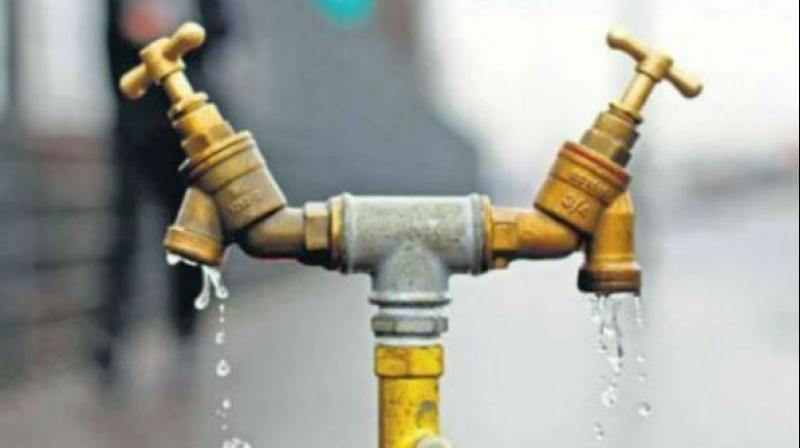Odisha Govt Sets Benchmark For Drinking Water Supply During Summer

Bhubaneswar: The Odisha government has set the benchmark for drinking water supply both for rural and urban areas during the ensuing summer.
A decision to this effect was taken at a video conferencing at the State Secretariat here on Tuesday. In the video conferencing, Chief Secretary Aditya Prasad Padhi, while reviewing the progress of drinking water projects in rural and urban areas, directed the collectors and officers of Panchayati Raj and Drinking Water Supply department to ensure that that there should be no scarcity of drinking water either actual or perceived during the summer.
Principal Secretary, Panchayati Raj Deo Ranjan Kumar Singh and Secretary, Housing & Urban Development G Mathivathanan outlined the district-wise position during the review.
Talking to media persons later, the chief secretary said the collectors have been delegated with all powers for drilling of new tube wells, sanitary wells and repair and maintenance of all drinking water sources. Sufficient fund have been kept in respective Panchayats for the purpose. The rate contract for procurement of spare parts has also been finalized. There is a bloc level committee under the chairmanship of BDO for procurement of materials. “The collectors should pull these resources and ensure adequate supply of drinking water in all areas,” he pointed out.
The Panchayati Raj secretary said instructions have already been issued during February regarding drinking water management in water scarcity and partially covered villages. While drilling new tube wells, care should be taken for 100% coverage of all partially covered villages on saturation mode.
He further said making the existing sources functional is more important than creating new sources. He gave strict instructions that all SEMs should act proactively for repair and maintenance of the existing drinking water sources.
The collectors were asked to disengage those SEMs who do not perform as per the level of expectation and substitute them by the new ones. They were also advised to engage mobile repair vans with clear branding in Odia “Pani Jala Jogana Maramati Gadi” in each block and a prepare a proper route chart for movement of the vehicle touching all Panchayats.
The district and block officers were further asked to engage water tankers in most difficult areas where the interventions cited above are not adequate to cater the drinking water need. In that case there should be 2 types of tankers- one static tanker at key location of the village and 2nd type is vehicle mounted mobile water supply.
The chief secretary directed the concerned department to supply water twice in a day once during morning and once during the evening hours.
All blocks will designate nodal officers for each Panchayat and there would be a 24 hour control room at the block level. Sarpanch of the respective Panchayat will take stock of the ground level reality on every Friday at 11 am. The BDO will review the situation on every Saturday at 11.00 am and the collector will take the review every Tuesday at 11 am. All districts must send the report Government on drinking water situation by Wednesday afternoon of each week.
Secretary Housing & Urban Development made it clear that control rooms should start functioning from Tuesday in all urban local bodies (ULBs). Preventive maintenance of all drinking water sources must be completed before March end.
The collectors were advised to monitor the daily water supply situation to each ward of all ULBs. This data is being daily uploaded in the official website of Housing and Urban Development departments for public view.
The standard of procedures already issued to all ULBs should be followed scrupulously without fail.
The chief secretary further directed to complete formation of ward level Water & Sanitation Committees in each ULB and identify Water Monitors preferably from among the Women SHGs.
The collectors were further asked to ensure issuance of outcome certificates of the newly constructed water supply projects in ULBs after actual field verification by a 4 member team consisting of PHEO Engineer, Concerned Executive Officer, Cooperator/Councilor and representative of the collector.

Comments are closed.